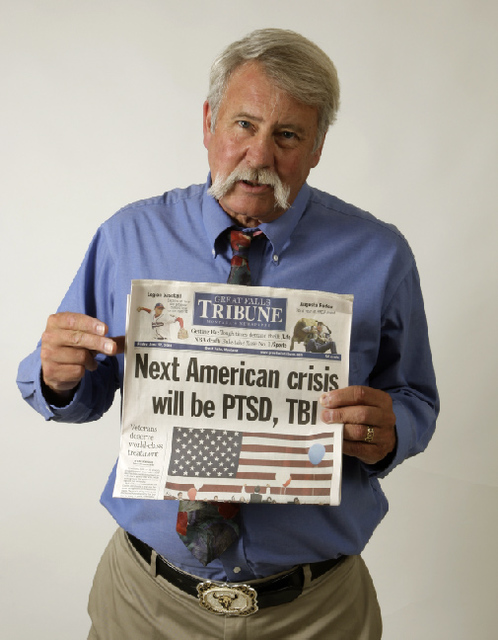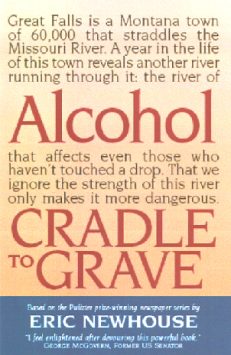Description
This book is available only as an e-book. Click on the Smashwords link in the title information to purchase a copy.
Here’s what Eric Newhouse has to say about his memoir:
Between August 2000 and September 2001, I kept a dairy of the craziest period of my life. It begins the day I was notified that I had won a Pulitzer Prize for explanatory reporting on alcoholism (the New York Times was a runner-up) and ends the day my first book, Alcohol: Cradle to Grave, was published.
The book is about journalism, and it has two major and two minor themes:
HONORS — For this 18 months, I crisscrossed the country, speaking to journalists and addictions/alcoholism groups alike. The diary uses those speeches to summarize the highlights of my stories on alcoholism. Some of the experiences were bizarre, however.
* I was invited to the White House Correspondents’ Roast of President Clinton in Washington, D.C., but was spreadeagled and searched to the immense amusement of my colleagues because I had forgotten I was carrying a big, Montana-issue knife in my suitcoat pocket.
* I was an honored guest at the Gannett Shareholders meeting in Arlington, Va., culminating in a dinner with the likes of former First Lady Rosalyn Carter and former Senate Minority Leader Howard Baker. But the big man in the room that evening was Al Neuharth, the founder of USA Today; when I found I had been seated at his right side at dinner, I had visions of being knighted in King Arthur’s Court.
* Sen. Max Baucus, D-Mont., invited me to visit when I was in Washington, D.C., so I stopped by his Capitol hideaway. We sat chatting in shirtsleeves until a bell rang announcing a floor vote that he needed to be present for. In a cab on the way to the airport, I discovered a strange sheaf of papers in the breast pocket of the suit coat I was wearing. It turned out to be a Senate treaty, and the gray pinstriped coat turned out to be Max’s. We had to call him off the Senate floor to effect the transfer.
* And a trip to speak at Gannett newspapers in Elmira and Binghamton, N.Y. Under some heavy questioning by colleagues, I came finally to understand that I’m a crusading newspaper editor/reporter, not unlike one of my heroes, Jacob Reiis, a century before me.
WORK — Despite the traveling, I also had a job to do. The summer of 2000 was one of the worst fire seasons in Montana’s recent history, and I spent a fair amount of time out on the fire lines, risking my life. One entry concerns being on a ridgeline in the Rocky Mountains with the Lolo Hot Shots, watching a 14,000 acre fire burning toward us; when a 25 mph wind sprang up, the Hot Shot chief directed an aerial water tender directly overhead to dump water on us to keep us from being burned.
But the major reporting I did that year concerned a mentally ill prison inmate named Mark Walker, who sent a handwritten note from his maximum-security cell to the Montana Supreme Court, arguing that he should be treated for his mental illness rather than being punished for it. I heard about the note and quickly investigated, finding that the prison psychiatrist and psychologist believed Walker had a personality disorder, not a full-blown mental illness, and that they were denying him some fairly expensive medications. He, in turn, had been written up more than 100 times in the course of a year and spent six months in solitary confinement, much of it naked in a cement and steel cell in the dead of a Montana winter, without a pillow or bedding because he was deemed a suicide threat.
After my first story ran, the Supreme Court accepted his letter as a legal filing and directed our District Court to hold evidentiary hearings. I covered the two-week hearing in which Walker challenged prison conditions and the "behavior modification plan" under which wardens attempted to force him to comply with regulations. Three outside psychiatrists testified that Walker was indeed mentally ill and unable to comply with prison regulations without psychotropic medications. Finally, to my surprise and horror, the judge sided with the prison doctors and returned Walker to the prison in Deer Lodge.
RECREATIONAL — One of the sub-themes is the beauty of Montana. I climbed a couple of mountains for the sheer joy of it. And my wife Susie and I joined friends in canoeing the wild and scenic Missouri River on a glorious three-day float trip. One of the thrills of that trip was watching a bull snake climb four trees in our campsite before it finally found a bird nest and ate five chicks in front of their distraught parents.
PERSONAL — In January of 2001, I got a call from my attorney in New Orleans, who had handled the adoption of both of my daughters. He told me that the birthmother of my youngest daughter was on her deathbed and needed to know that her child was doing well. In what became almost a Cinderella story, my daughter was unable to meet face to face with her birthmother, but met with the rest of her natural family and discovered them to be loving and wealthy beyond her dreams. "I’ve got a whole new family," she told me the night the corporate jet flew her to meet her stepfather in Greenwich, Conn. "You can never have enough people who love you."
POSTSCRIPTS — The Montana Supreme Court, on a 6-1 vote, overturned the district judge in the Mark Walker case, ordered improved prison conditions for the mentally ill, and outlawed the "behavior modification plans" under which the Department of Corrections had punished Walker. It also called his living conditions cruel and unusual punishment under the constitutions of the United States and the state of Montana.
Bill Broderson, whom I had reported on for the year of my series on alcoholism, was told that his constant drinking had worn out his body. I was with him in the doctor’s office as he received his death sentence, and I was with him the day of his death. He was cremated, and we released his ashes in the Rocky Mountain Front several months ago.
And I’ve been invited to be a juror for the 2007 Pulitzer Prizes, which brings this book full circle to a logical conclusion.






